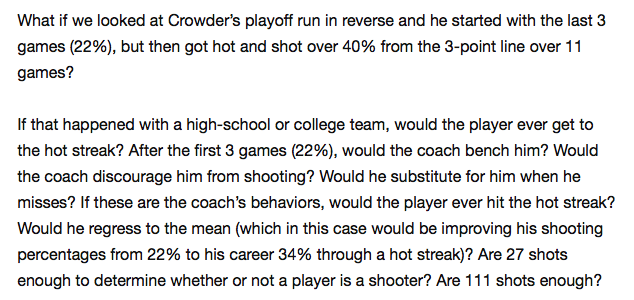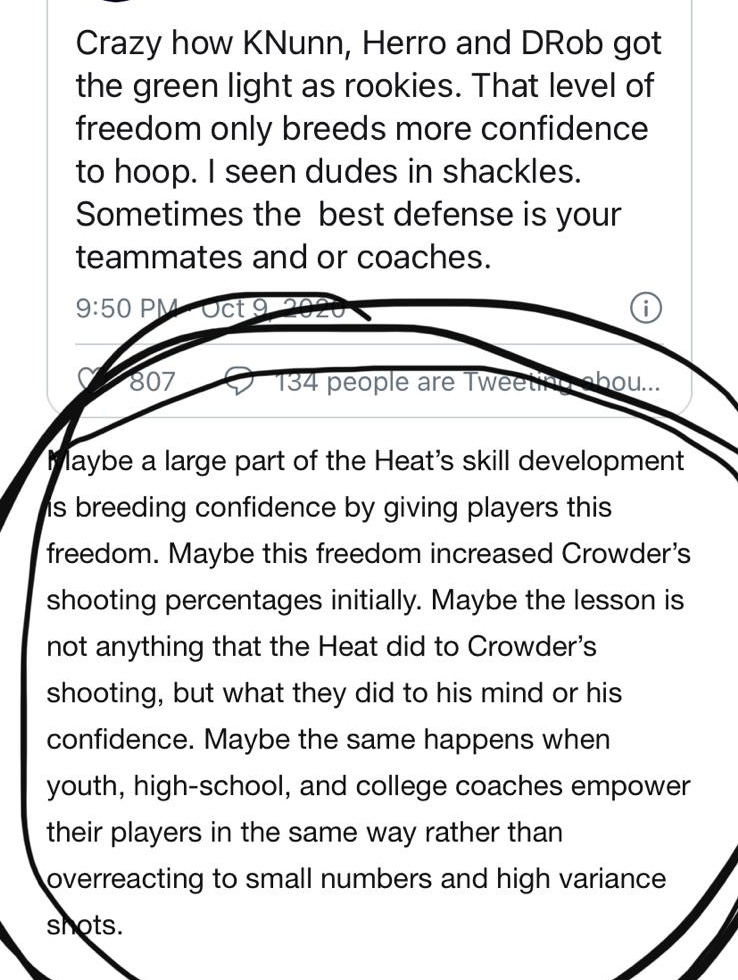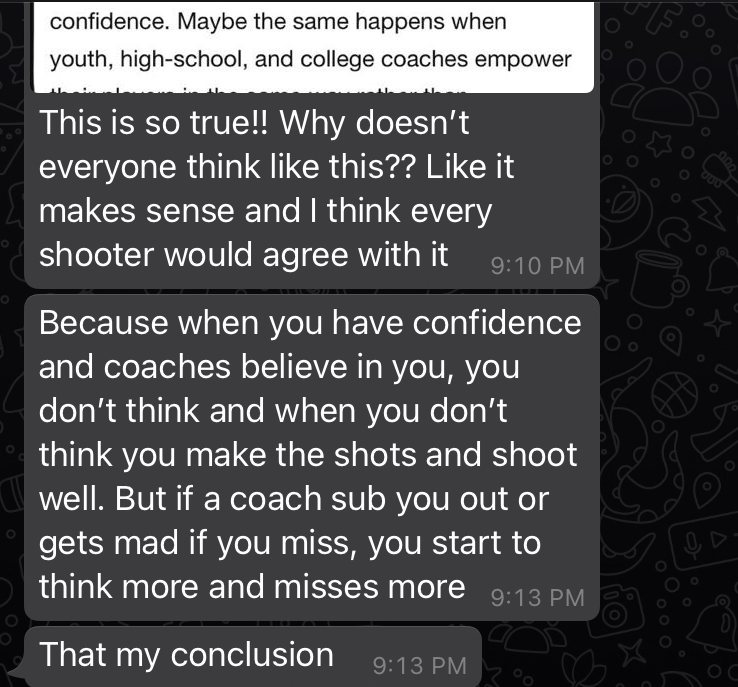Often, a parent or coach will comment on a player and attribute the player’s improvement to a single thing: “Johnny worked out with Super Trainer this summer, and now he’s better than Jimmy”. There are multiple issues with these statements.
First, skill development is multifactorial. Players do not improve because of a single drill, exercise, practice, or coach. The environment, coach’s system, nutrition, growth and maturation, physical development (i.e. strength training), mental development, and more affect improvement. Johnny may have been lifting weights too or finished his growth spurt or avoided stresses that affected Jimmy (parent’s divorce, sick grandmother, bad grades, etc).
Second, we cannot see learning; we infer learning through performance. Performance is temporary. It is a single snapshot in time. Learning is a relatively permanent change in performance. If Johnny is an early maturer and Jimmy is a late maturer, the “improvement” may simply be maturation, and may change in six months when Jimmy catches up.
Third, we do not practice for practice performance; we practice to perform in games. Therefore, we cannot measure improvement now; we have to wait until the season to measure improvement. Of course, season to season improvement has many confounding variables; is a sophomore better than he was as a freshman because he improved in the offseason, or because he is has acclimated to the new level of competition, he is older and more mature, etc.?
Fourth, when we compare Johnny working with a trainer to Jimmy, what did Jimmy do? If Johnny worked out for 2 hours per week with Super Trainer, how did Jimmy spend that time? If the rest of their time was the same, did Johnny improve because of the training or just because he spent 2 hours more per week on basketball? Is it the training or just the volume of time on task?
To demonstrate that the improvement was due to the training, Jimmy would have had to spend equal time on basketball-related activities: Jimmy could have shot by himself or played pickup games or worked with a different trainer. If we can control the other variables (strength training, growth, playing time, etc), and each spent equal time in basketball-related activities, then we have demonstrated the training effect.
Now, practically, none of this matters; if Johnny improved, that is the goal. If he played video games all summer and came back as a better player, he achieved the goal! The question, of course, is whether he maximized his time. If he had played more pickup games, would he have improved more? If he spent more time lifting weights and less on basketball, would he have improved more? Because we do not have unlimited time and energy to train, we want to maximize those hours. This, of course, is one reason that we choose to work with trainers rather than shooting on our own: There is a perception that we improve more when with a trainer.
Is that a reality? I know the biggest effect that I had on my first client when I started as a shooting coach when I was 21 was that she practiced more. I lived in Los Angeles, and parents were busy and drove their children all over town. When the day got out of hand, the easiest thing to skip was taking your daughter to the park to shoot by herself for an hour. However, with a training appointment, parents blocked that time in their calendars and scheduled around it. Therefore, the player practiced more. The extra 1-2 hours on the court per week helped her improve more than anything we actually did during those sessions. It was not the drills or the instructions; it was the time, because the alternative was 1-2 less hours on the court.
This is not to suggest that training is bad or all coaches and trainers are the same. Instead, hopefully parents and players feel less pressure to pay for an individual coach or to find the “right” private coach. Hopefully, they realize that other activities (pickup games, shooting on one’s own) also have value and develop skills. Hopefully, we realize that players mature, develop, and improve at different rates, and we do not have to compare them constantly. Hopefully, we see that skill development is many things, not just isolated, individual training, and improvement can come in varied ways; maybe the best way to improve a skill like shooting is to get stronger and more powerful, not to spend more time fixing one’s technique or getting up more reps. Hopefully, parents and players feel empowered to do what they believe is best for them, not what Twitter and Instagram tell them they have to do to succeed.




